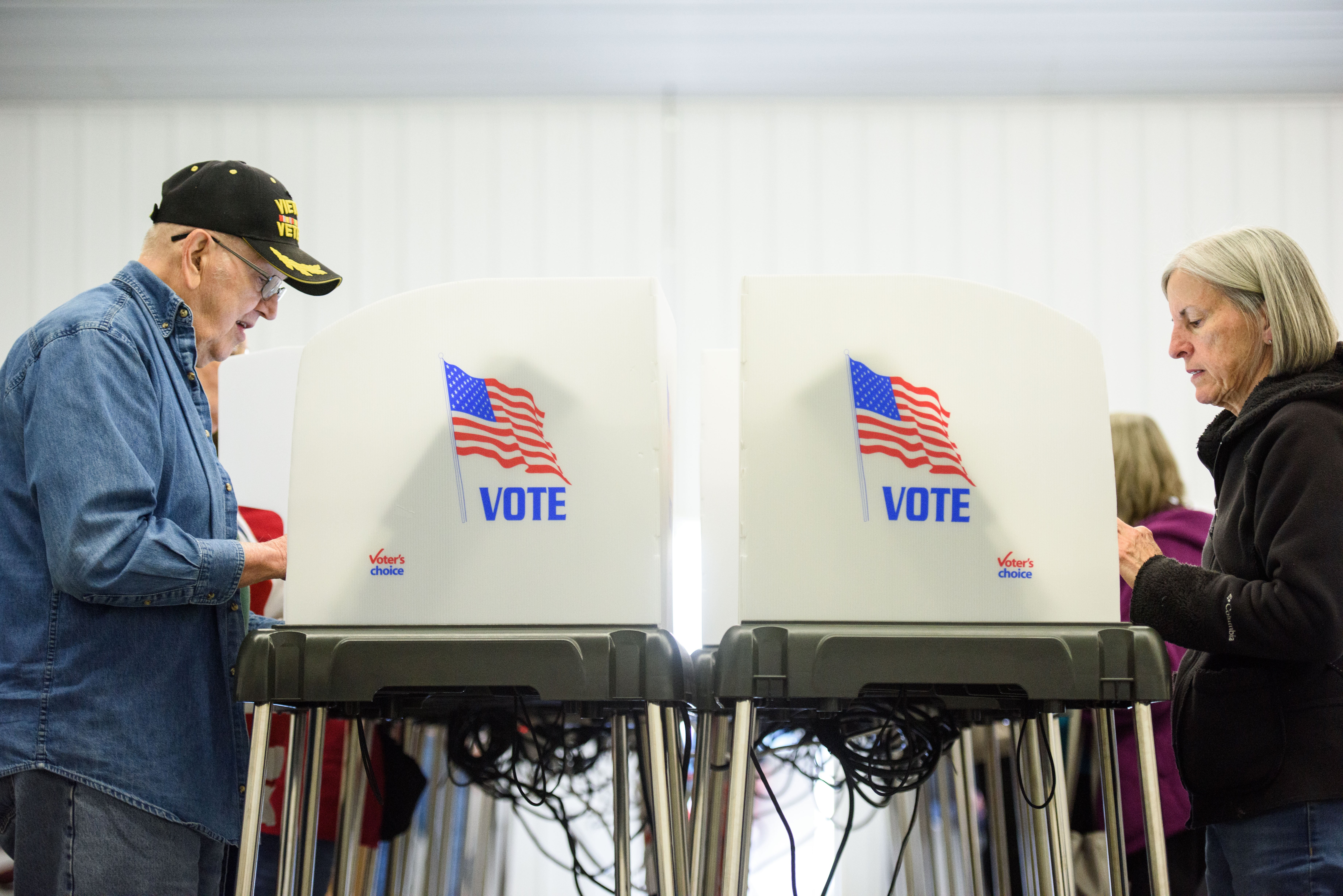Trump’s DoJ is demanding states hand over election information. Officials are wondering what they intend to do with it

The Department of Justice is on a mission to collect election information, including sensitive voter information, from states as part of President Donald Trump’s executive order cracking down on voting accessibility – but it’s left state officials concerned.
Over the last three months, the DoJ’s Voting Section has reached out to at least 15 states seeking their voter roll, information about individuals who may have violated federal voting laws, and questions about the state’s process for identifying and removing ineligible voters, the Associated Press reported.
Traditionally, the Voting Section’s main focus is to protect citizens’ right to vote, but under Trump’s direction, it’s cracking down on voter fraud – a rare occurrence that Trump has mischaracterized as a major problem in the United States.
But some state officials have flagged concerns with the swath of information being requested, saying voter rolls contain private information about individuals and cannot be shared without congressional notification.
Utah’s Lieutenant Governor Deidre Henderson, the state’s top election official, said she refused to provide expansive information on the state’s 2.1 million voters to the DoJ.

“We’ve offered the public voter list. If they want protected data, there’s a process for government entities to request it for lawful purposes,” Henderson told The Salt Lake Tribune.
“We’ll address that if it comes,” she continued, “but so far we haven’t identified any federal or state statute that would justify handing over to the federal government the personal identifying information of 2.1 million Utah voters,” Henderson added.
Officials in at least four California counties told the Associated Press that DoJ officials requested information about the number of people removed from rolls for being noncitizens, including their ID numbers, dates of birth, and voting records.
Trump has sought to conduct the largest deportation of undocumented immigrants, in part by targeting individuals using government information.
In Colorado, DoJ officials demanded the state hand over “all records” pertaining to the 2024 election – a massive trove of documents that includes ballots and voting equipment information, as well as records retained from the 2020 election.
Last year, the Colorado state Supreme Court tried to bar Trump from appearing on the presidential ballot, claiming he was ineligible because he violated the Fourteenth Amendment by inciting the January 6 attack on the Capitol.
The U.S. Supreme Court ultimately ruled in favor of Trump, declaring that states did not have the authority to determine a federal candidate’s eligibility.

In Maine, Secretary of State Shenna Bellows said she was denying the DoJ’s request for the state’s voter registration list, the names of officials who maintain the list, and the number of ineligible voters due to noncitizenship status.
Officials had sent multiple requests for information, one of which insinuated that Maine had an unusually high number of registered voters, the Maine Morning Star reported.
“The nature of these questions suggest that the DOJ is more interested in keeping people that they don’t like from voting than promoting voter registration and participation,” Bellows told Maine Morning Star.
Already, DoJ officials had spoken to Bellows about a potential “information-sharing agreement” to provide the department with information on registered voters who are ineligible to vote.
Similar requests were made to Arizona, Connecticut, Michigan, Nevada, New Mexico, Rhode Island, and Wisconsin.
“Why on Earth does the Department of Justice need the voter information from all 50 states?” Bellows asked. “If Congress thought it was appropriate that there be a national voter file, Congress could have authorized the Department of Justice to do that, but they have not.”
The DoJ’s motivation in collecting such information appears to be to assist its efforts to identify and prosecute those who violate federal election laws.
Trump has directed the attorney general and DoJ to collect election information from states to add extra safeguards to elections.
Despite no evidence of mass voter fraud or noncitizen voting in the last several elections, Trump has continually claimed the 2020 election was rigged with mass voter fraud and that undocumented migrants voted in the 2024 election.
